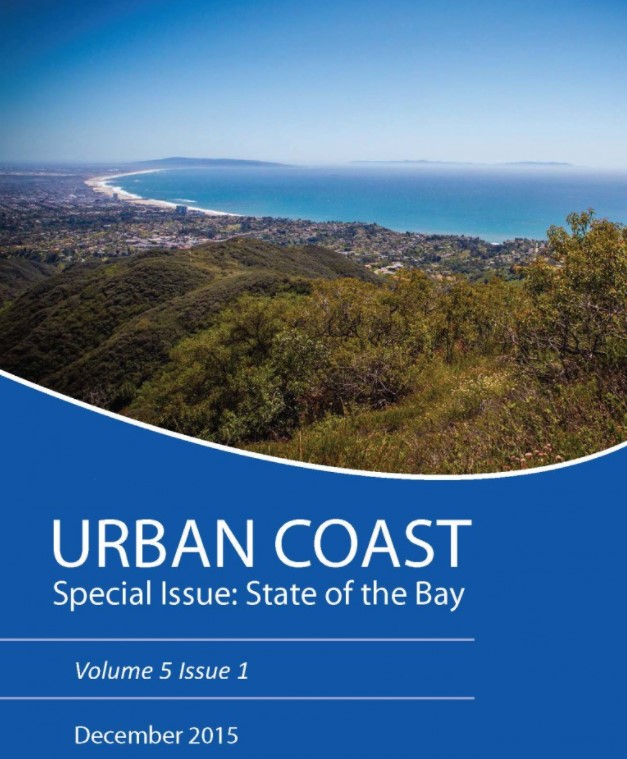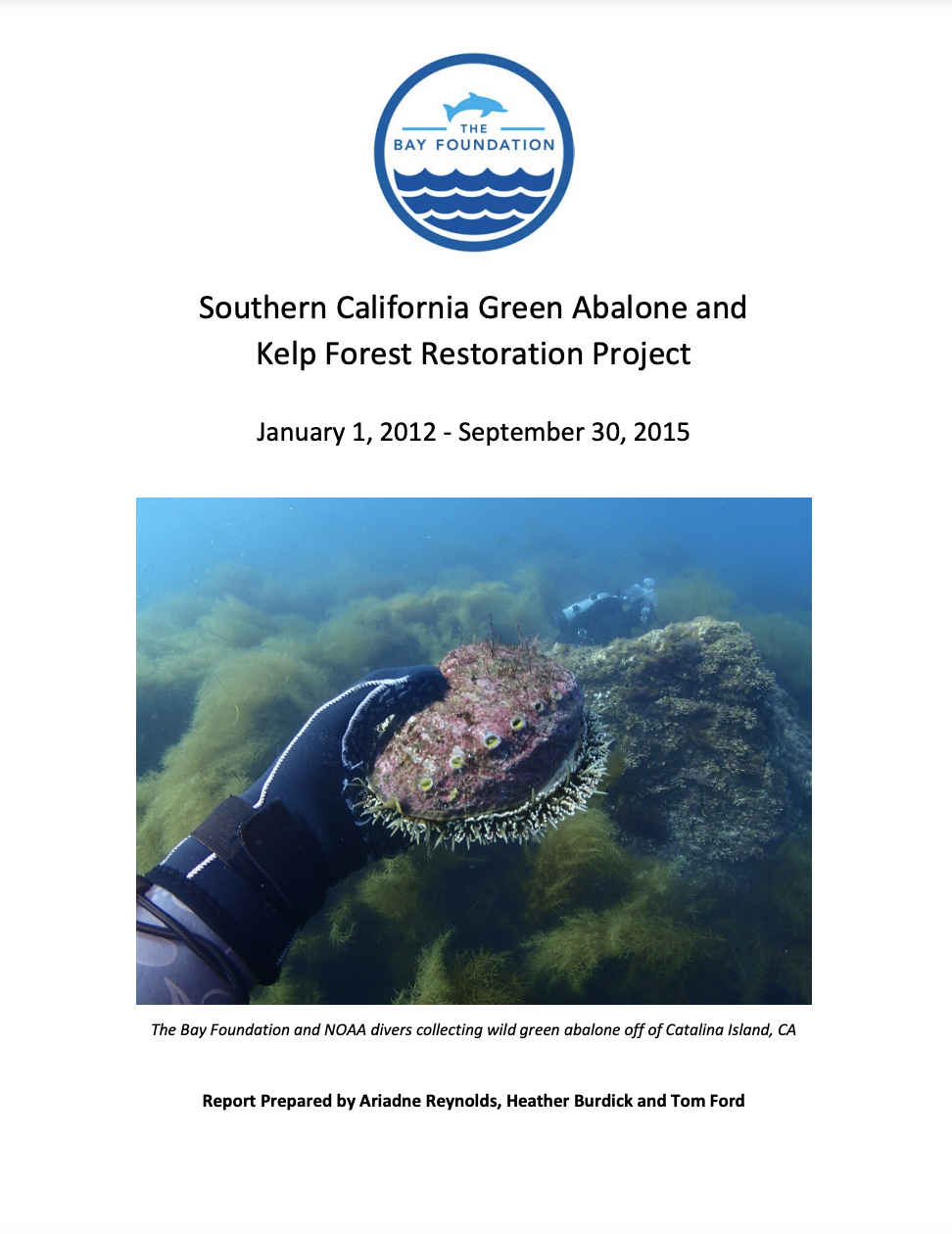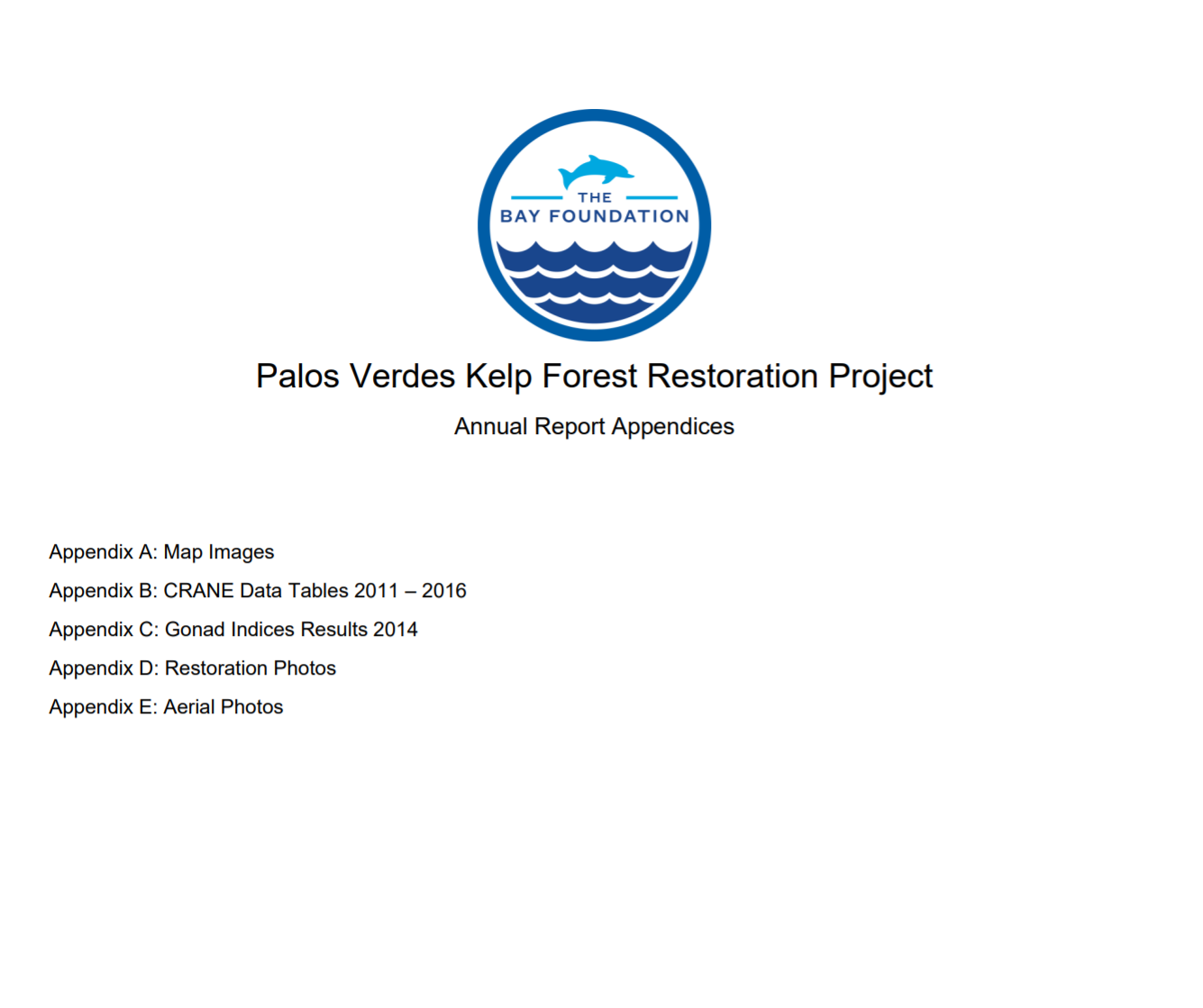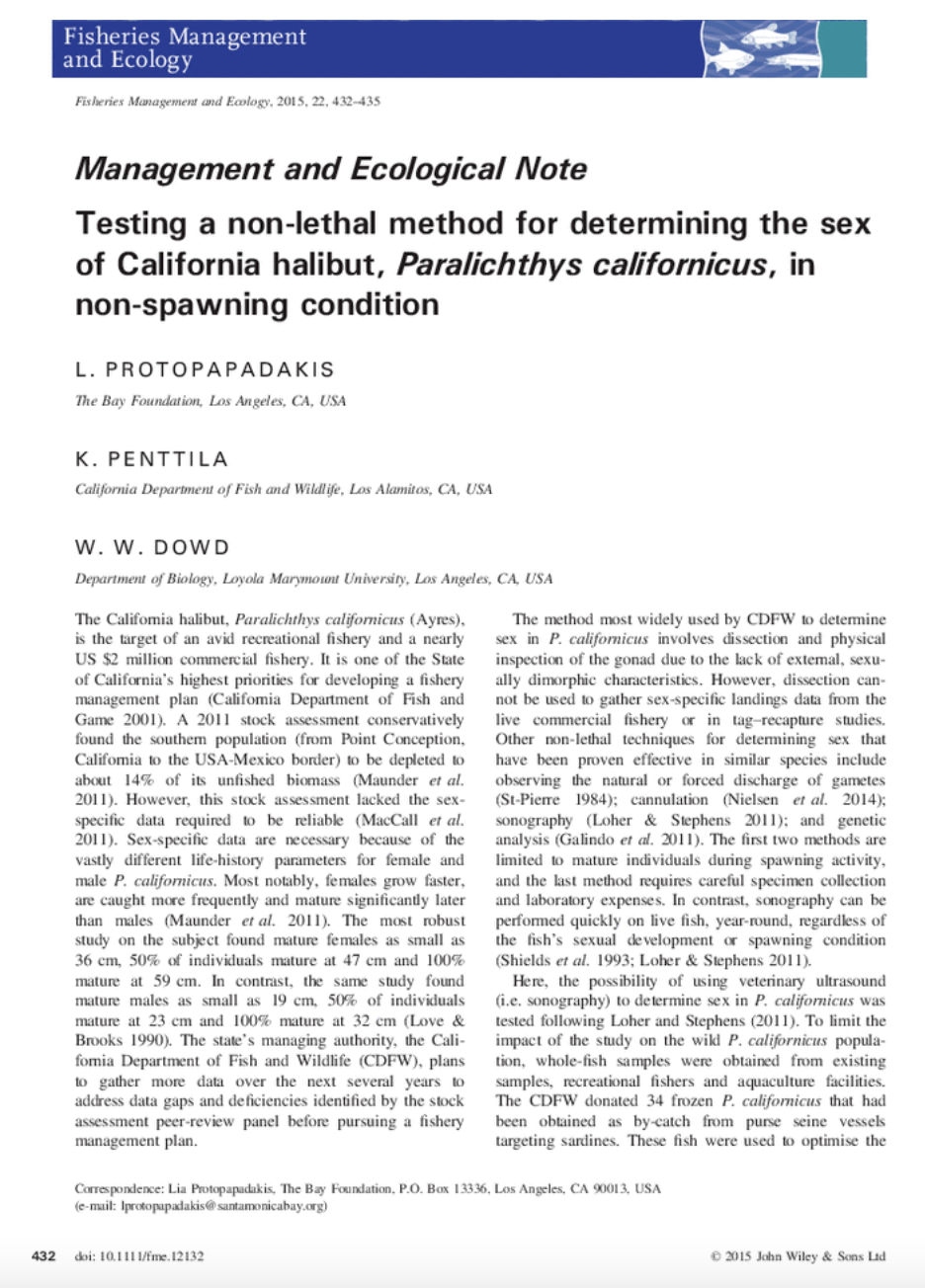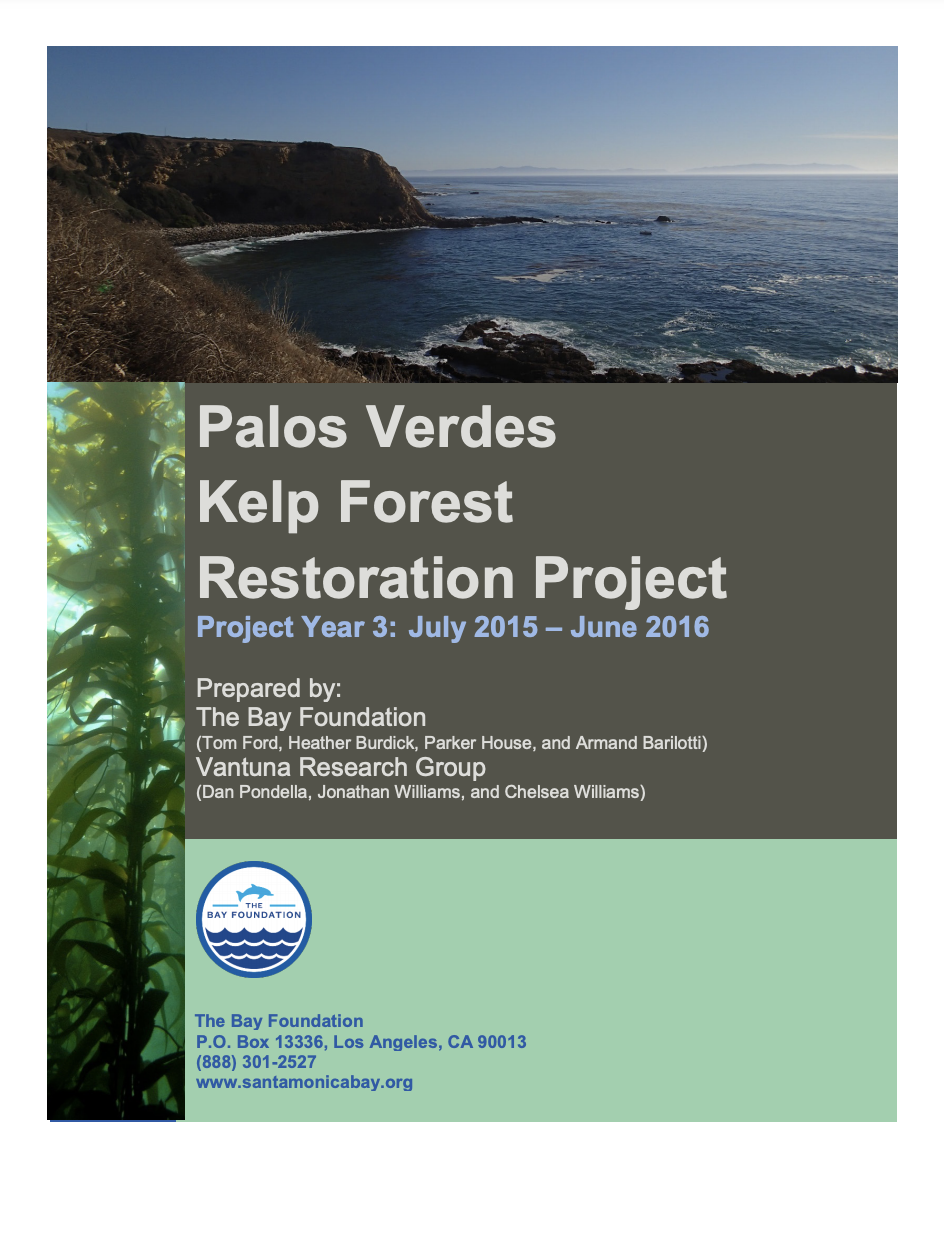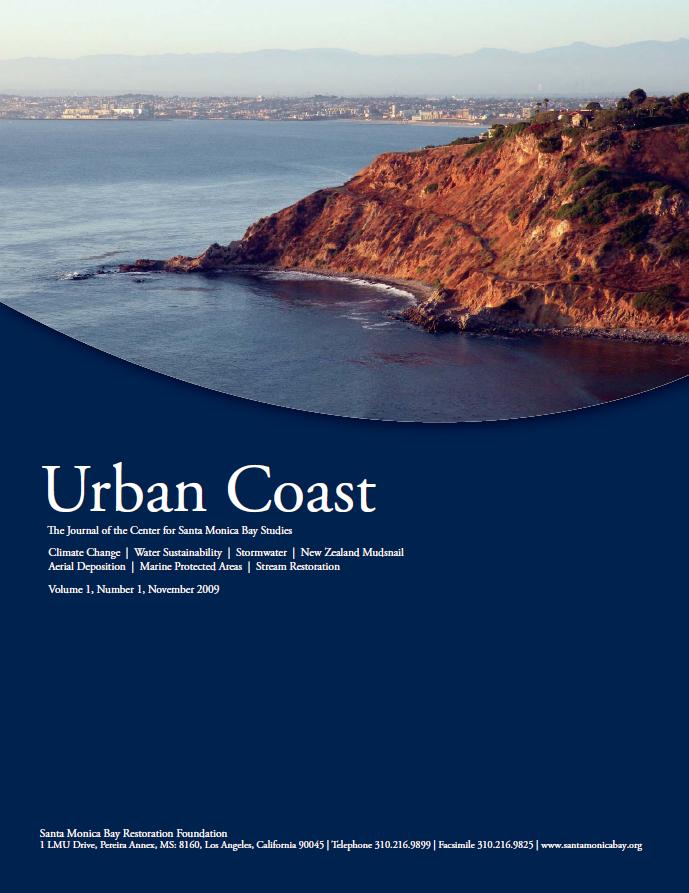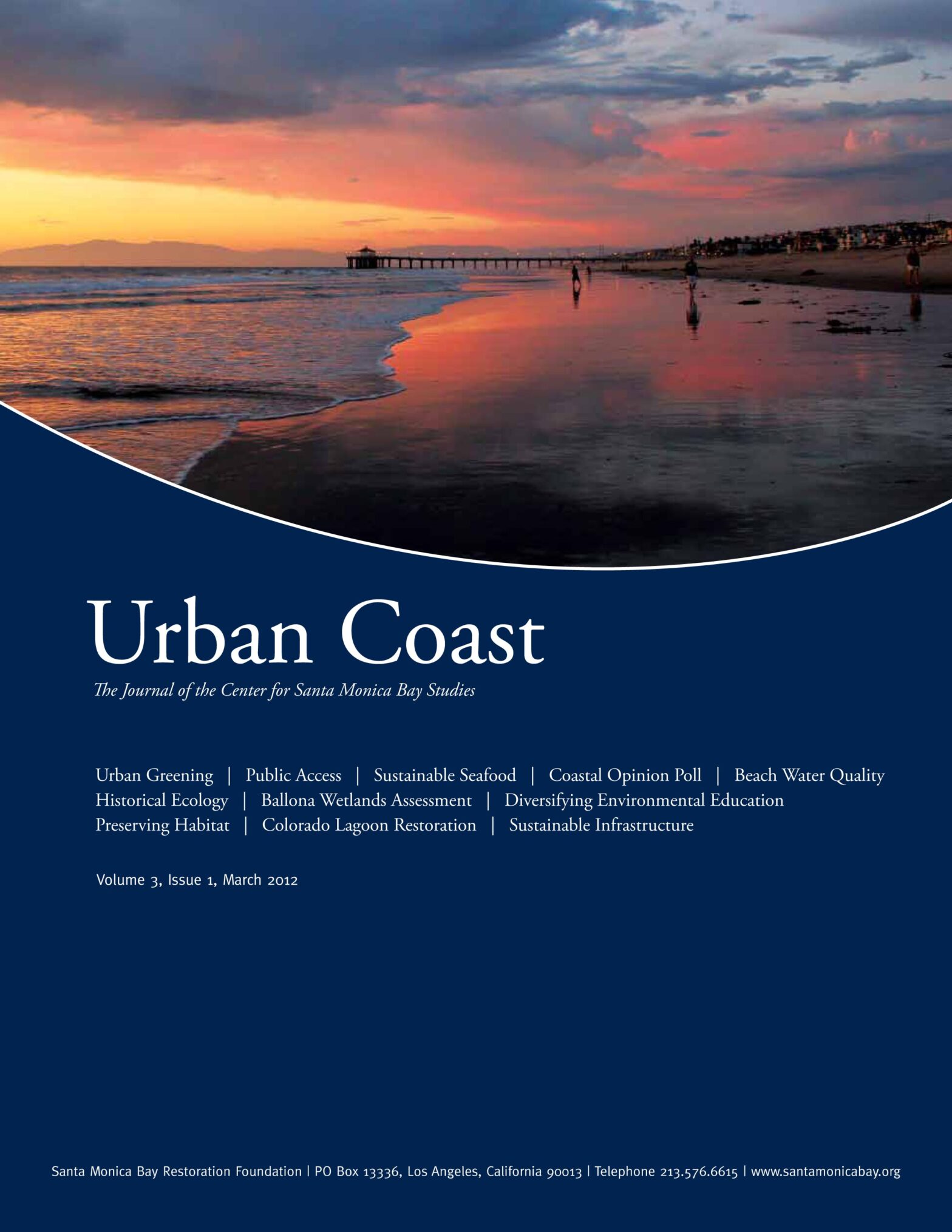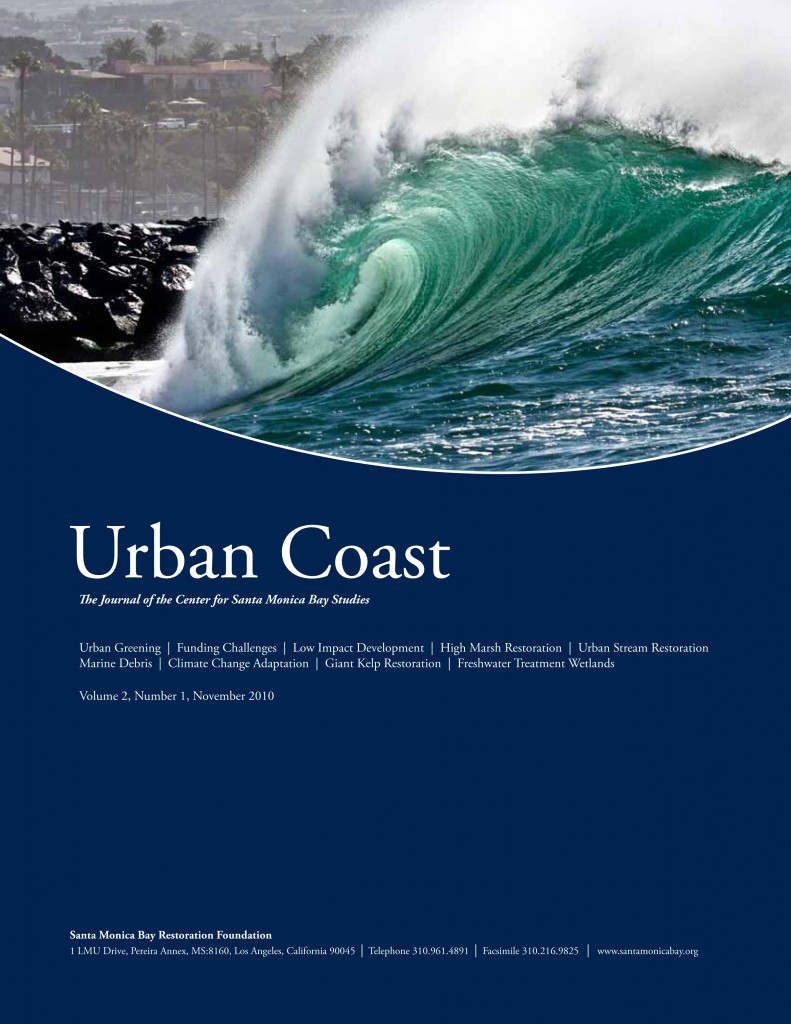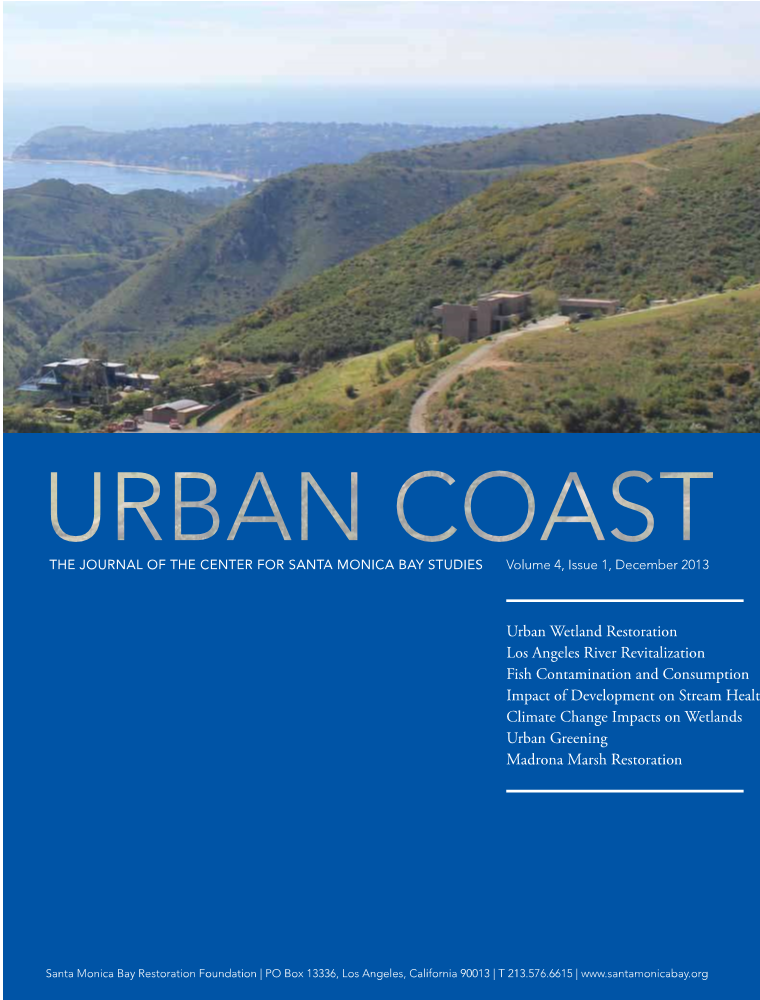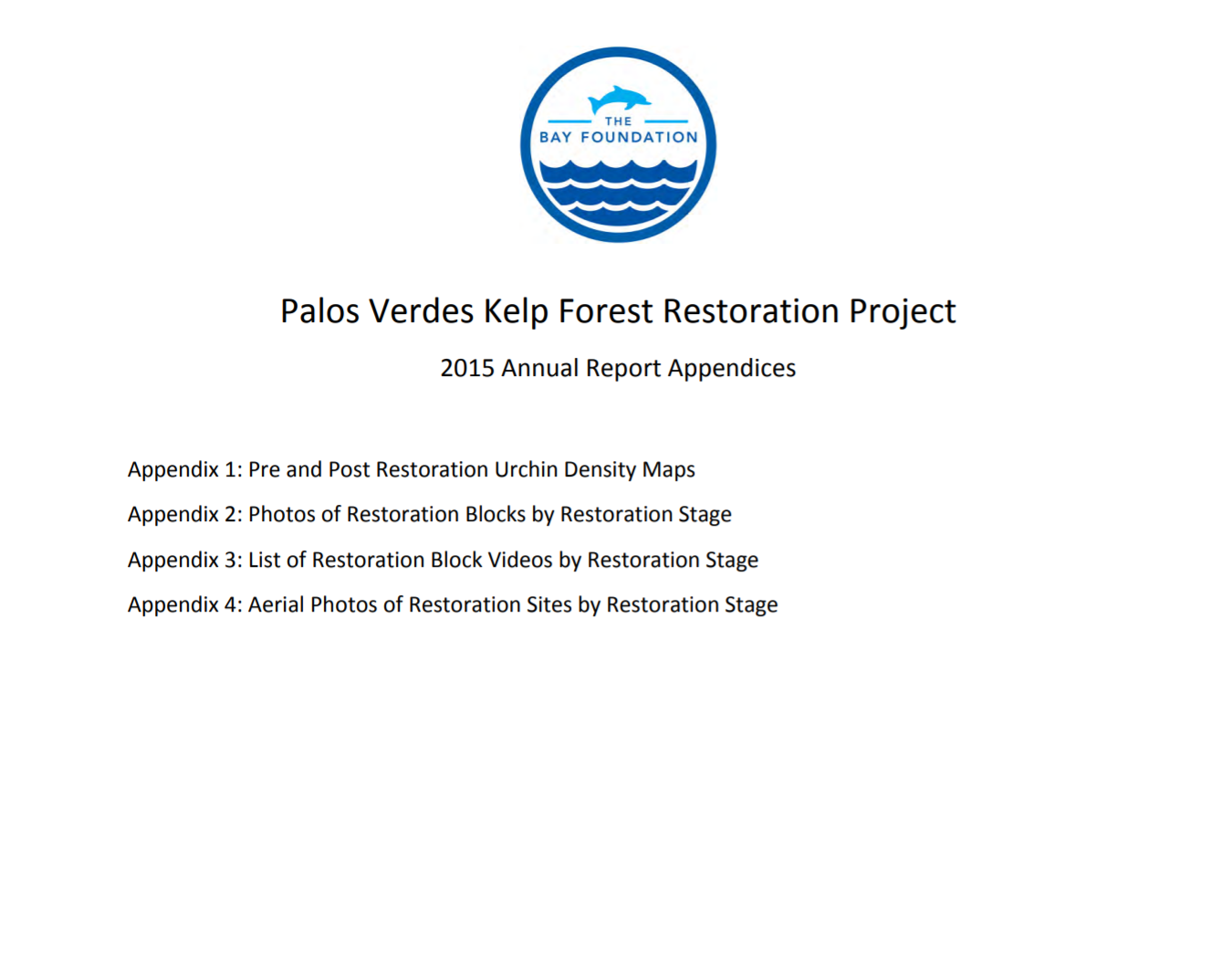The 2015 State of the Bay Report is a science-based comprehensive assessment of the Bay’s environmental condition. The Santa Monica Bay National Estuary Program (SMBNEP) periodically conducts and makes a report on this assessment, with the goal of measuring progress in restoring the Bay’s natural habitats and resources, educating the public about the Bay’s valuable… Continue reading Urban Coast Volume 5, Issue 1 – Special Issue: State of the Bay – Dec 2015
Topic: Ocean
Southern California Green Abalone and Kelp Forest Restoration Project: January 1, 2012 – September 30, 2015
(Abstract) The Southern California Green Abalone and Kelp Forest Restoration Project aims to restore populations of green abalone (Haliotis fulgens), a federal species of concern, to Southern California where they were once plentiful and supported a thriving commercial fishing industry. This pilot project explored methods of spawning, rearing, and outplanting green abalone, investigated the genetic… Continue reading Southern California Green Abalone and Kelp Forest Restoration Project: January 1, 2012 – September 30, 2015
Kelp Forest Restoration Annual Report July 2015 – June 2016 (Year 3) – Appendices
Appendices to Year 3 Annual Report including project maps, photos and additional data.
Testing a Non-Lethal Method for Determining the Sex of California Halibut, Paralichthys californicus, in Non-Spawing Condition.
Research publication on testing a non-lethal method of determining the sex of California halibut (Paralichthys californicus).
Kelp Forest Restoration Annual Report July 2015 – June 2016 (Year 3)
Kelp forest ecosystems are iconic and productive features along the coast of California with services that span a wide array of consumptive (e.g., commercial and recreational fishing) and non-consumptive (e.g., tourism, scuba diving and coastal protection) uses. This publication provides a Year 3 update on the Palos Verdes Kelp Forest Restoration Project.
Urban Coast Volume 1, Issue 1 – Nov 2009
The Urban Coast multidisciplinary scientific journal is a peer-reviewed product of the Coastal Research Institute, a partnership of Loyola Marymount University’s Seaver College of Science and Engineering and The Bay Foundation. Urban Coast provides a forum for researchers, agencies, advocacy groups, and other science and policy leaders to engage in constructive discussion and information exchange on issues that are pertinent to our… Continue reading Urban Coast Volume 1, Issue 1 – Nov 2009
Urban Coast Volume 3, Issue 1 – March 2012
The Urban Coast multidisciplinary scientific journal is a peer-reviewed product of the Coastal Research Institute, a partnership of Loyola Marymount University’s Seaver College of Science and Engineering and The Bay Foundation. Urban Coast provides a forum for researchers, agencies, advocacy groups, and other science and policy leaders to engage in constructive discussion and information exchange on issues that are pertinent to our… Continue reading Urban Coast Volume 3, Issue 1 – March 2012
Urban Coast Volume 2, Issue 1 – Nov 2010
The Urban Coast multidisciplinary scientific journal is a peer-reviewed product of the Coastal Research Institute, a partnership of Loyola Marymount University’s Seaver College of Science and Engineering and The Bay Foundation. Urban Coast provides a forum for researchers, agencies, advocacy groups, and other science and policy leaders to engage in constructive discussion and information exchange on issues that are pertinent to our… Continue reading Urban Coast Volume 2, Issue 1 – Nov 2010
Urban Coast Volume 4, Issue 1 – Dec 2013
The Urban Coast multidisciplinary scientific journal is a peer-reviewed product of the Coastal Research Institute, a partnership of Loyola Marymount University’s Seaver College of Science and Engineering and The Bay Foundation. Urban Coast provides a forum for researchers, agencies, advocacy groups, and other science and policy leaders to engage in constructive discussion and information exchange on issues that are pertinent to our… Continue reading Urban Coast Volume 4, Issue 1 – Dec 2013
Kelp Forest Restoration Annual Report July 2014 – June 2015 (Year 2) – Appendices
Appendices to Year 2 Annual Report including project maps, photos and additional data.
